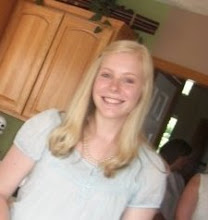"The middle of two extremes is always where balance is found!"
--What Every Violinist Needs to Know about the Body,
Jennifer Johnson
I have a new brilliant practicing philosophy: If it hurts, if I'm tense or if it's out of tune, I'm playing too fast. I suppose this is common sense, but sometimes, these perfectly simple, well-of-course, 'I knew that', no duh moments in life are the most significant revelations. So, I'm practicing slow and giving my metronome a workout of Olympic proportions. Going for the gold...
When attempting to integrate a relaxed and free approach to viola playing, slow practice is really your only hope. It's impossible to focus on how you're moving if all of your energy and effort are consumed by a difficult run. If you learn a passage with tension, that rigidity has become part of your technique for mastering the passage work, which just perpetuates habits of unhealthy movement. Nobody wants this; people do it anyway. The problem is that it's easy to focus on the end product without thinking or worrying about how it's being accomplished.
But I'm leaving that all behind, bidding farewell to tension, moving on to a bigger and better thing known as BALANCE. I've been searching for it all summer. It's somewhere between a rigid posture and a relaxed slump, it's grounded but not fixed, it's supported but not static, it's efficient and it works marvelously with gravity. I'm still trying to figure it out, but I'm making progress. My biggest challenge right now is figuring out how to deal with the intrinsic muscular and structural imbalance created by scoliosis. Someday I will have answers. Or maybe just more questions. We will see.

Anyway, another trick I learned at the Tuttle workshop is to keep a check list of physical objectives visible on your stand while you're practicing, just to remind your brain that you're not just trying to play the right notes. After you have a list, play
through a passage focusing on one objective at a time. Then, after you've done each individually, start
adding them all together until you can play the passage incorporating all of the items on the list--and then you can notch your metronome 5 clicks faster and do it again! If you're practicing slow enough, you can almost ignore what you're playing and just focus on your ribs or breathing or whatever you're working on.
Eventually, it will all come together musically and physically at the final tempo, far superior to any result of the alternative approach of tension, discomfort and frustration. And there's a better chance you won't end up with carpel tunnel. It's all a balancing act!
Take home message: Don't ignore your body. It's uncomfortable for a reason. Take the time to create healthy habits and work on developing kinesthetic awareness. It doesn't matter if you're a musician. If you're human and you're reading this, make it a mission to find balance. Someday, your body will thank you.
I will defy (gravity).
